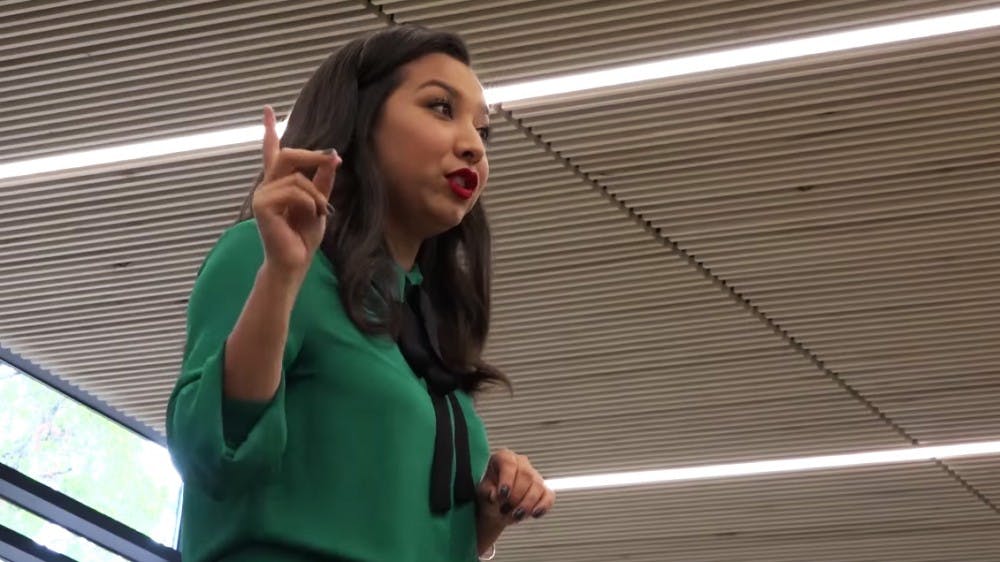When Sonia Gutierrez first arrived in Columbia a year and a half ago to work at WLTX, she went to the public library to find out more about the history of Latinos in South Carolina.
“The woman seemed really confused, and said that she didn’t think that they had much,” Gutierrez said.
Eventually, the librarian said she thought she knew what Gutierrez was looking for — she brought her to a section on crime in South Carolina.
“That is why I’m here,” Gutierrez said. “This should not be happening.”
Gutierrez grew up in a close family in Denver, Colorado, and became interested in journalism because the local media coverage of her community contrasted so strongly with what she knew and loved. Gutierrez is now an award-winning reporter, and was instrumental in coverage of the October floods for the Latino community in Columbia.
“I wanted to be part of the change that I wanted to see in the newsroom,” she said.
Gutierrez’ experience is not unique. While Hispanics make up over 5 percent of the population in South Carolina, there is very little recognition of their community in the media or by the government, in Gutierrez' opinion. The librarian, and residents throughout the state, aren’t aware that a community exists, she said. Even on the USC campus, where only 4 percent of students are Hispanic compared to 17 percent nationally, many students face prejudice and misunderstanding.
“Being in South Carolina, we are stuck with these stereotypes,” said fourth-year experimental psychology student Lizeth Morales, the founder of the first Latina sorority in the Carolinas.
Morales, who is Colombian-American, said she frequently encounters students who automatically assume she’s Mexican. And Gutierrez, who covers stories in rural South Carolina and is often the first person of Mexican descent that people meet, recounted a time when someone said to her, “Oh, you’re the Mexican that speaks Mexican to the Mexicans.”
Both of them, however, emphasized how the reaction to these situations should not be to get offended or angry, because usually people just aren’t aware of the Hispanic and Latin communities in Columbia or on campus.
Thursday is the first day of Hispanic Heritage Month, which starts on the anniversary of the independence of five Latin American countries.Morales urged people to take advantage of opportunities this month to learn more about her culture.
“Even if it’s just going to eat our food, that’s you going out of your comfort zone to learn more about someone else’s culture,” Morales said.
On Friday at noon, the Latin American Student Organization is holding a Hispanic Heritage Month Kick-Off on Greene Street. The event will have booths for different regions with food, games and information, as well as music and dance instructors.
“It’s really important for us to be seen on campus,” LASO president Janelys Villalta said, “and with that, being seen, we also want people to understand us.”
Villalta, a third-year broadcast journalism student, spoke about why Hispanic Heritage Month is important. The kick-off is obviously the biggest event, she said, but other events will be held throughout the next month to engage students who want to learn more.
“A lot of people definitely need to dig into what the Latinx and Hispanic community is,” Villalta said.
Gutierrez and the students at USC shared the same conviction that education and awareness are the keys to understanding the Latin American community.
That’s why Gutierrez loves her job, she said. She is able to tell people’s stories — stories that might change someone’s perspective on her community.
“These stories are taking [people] to places that are obviously not what they know,” Gutierrez said. “You realize the power your work has.”

